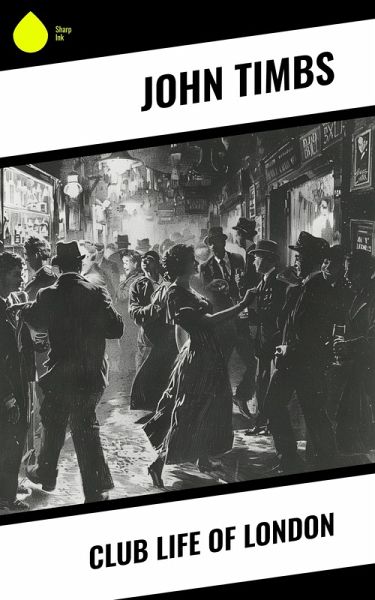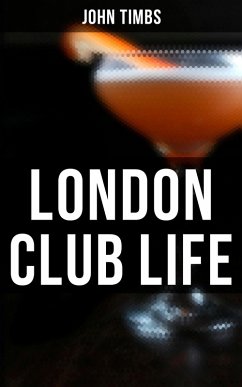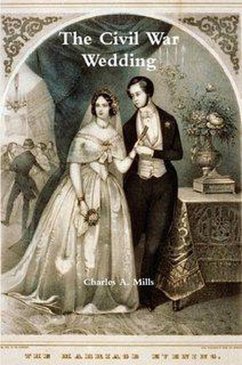
Club Life of London (eBook, ePUB)

PAYBACK Punkte
0 °P sammeln!
In "Club Life of London," John Timbs provides a fascinating exploration of the vibrant social culture that defined Victorian-era London through its eclectic clubs. Written with meticulous attention to detail, Timbs employs a narrative style that interweaves historical anecdotes with lively descriptions, showcasing the diverse array of establishments that catered to both the elite and the burgeoning middle class. The book serves as both a historical document and a sociological study, delving into the customs, debates, and lifestyles that flourished within these establishments, while also reflec...
In "Club Life of London," John Timbs provides a fascinating exploration of the vibrant social culture that defined Victorian-era London through its eclectic clubs. Written with meticulous attention to detail, Timbs employs a narrative style that interweaves historical anecdotes with lively descriptions, showcasing the diverse array of establishments that catered to both the elite and the burgeoning middle class. The book serves as both a historical document and a sociological study, delving into the customs, debates, and lifestyles that flourished within these establishments, while also reflecting the broader societal shifts of the time. John Timbs, a notable journalist and antiquarian, drew inspiration for this work from his own experiences and observations of London society. His earlier writings on the history and culture of London add depth to his portrayal of the clubs, revealing Timbs' keen interest in the interplay between social dynamics and urban development. His background in literature and journalism equips him with a unique perspective, allowing him to weave together personal narratives with the sweeping transformations that colored the landscape of 19th-century London. Timbs' "Club Life of London" is a must-read for anyone interested in the intricacies of social history, urban culture, or the formation of modern leisure activities. This insightful account not only enlightens readers about the past but also invites contemporary reflections on social interaction and community building. Dive into this engaging text and discover the spirited life that animated the clubs of London!
Dieser Download kann aus rechtlichen Gründen nur mit Rechnungsadresse in A, B, BG, CY, CZ, D, DK, EW, E, FIN, F, GR, HR, H, IRL, I, LT, L, LR, M, NL, PL, P, R, S, SLO, SK ausgeliefert werden.












